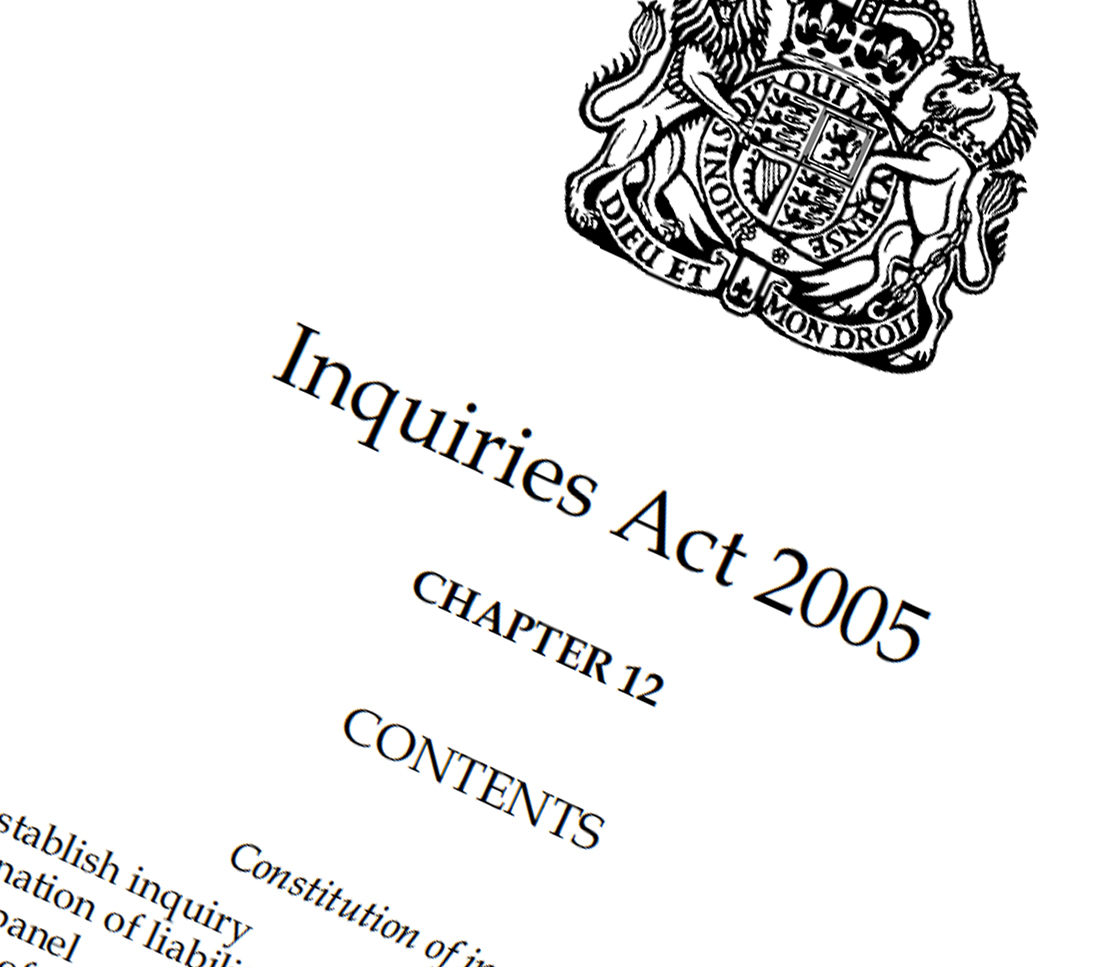
Recall refers to the power to remove (recall) an elected politician from office. Recall is an example of direct democracy and theoretically gives voters significant control over their representatives. In Britain, the Recall of MPs Act (2015) gave voters some power to recall MPs in certain circumstances.
How is the power of recall used internationally?
Canada – There is no law allowing recall on a Federal (national) level in Canada. However, in British Columbia, a representative can be removed from office if they have held their seat for at least 18 months and 40% of their constituents sign a recall petition. This law has been in force since 1995 and has been invoked 26 times.
Germany – There is no federal law allowing recall. However, in the Bavarian Landtag (Parliament) the entire Landtag can be dismissed by referendum if 1 million citizens sign a recall petition.

United States – The United States has no federal recall laws. However, recall has a long history in state politics and 19 states have recall laws. Recall powers vary depending on the state. In some states, for example Alaska or Georgia, specific grounds of misconduct are required to recall officials. However, in other states, like California, there are no such requirements. In California, all that is required to initiate a recall is the signature of 12% of registered voters in any given electoral district. In April 2020 a recall petition was successful against the Governor, Gavin Newsom and a recall election took place in September 2021 which Newsom won.
Venezuela – Article 72 of the Venezuelan Constitution allows for the recall of any elected official if 20% of registered voters in any district sign a petition. In 2004 this mechanism was used to try to remove the President, Hugo Chavez. However, he survived the vote in the subsequent referendum.
What was the power of recall in the UK before 2015?

Prior to 2015, there was no power of recall in the UK. In fact, removing an MP from office at all was very difficult. Under the (Representation of the Peoples Act, 1983) the only circumstance under which an MP could be removed from office was if they received a prison sentence of 12 months or longer. Lesser prison sentences did not meet this threshold. For example, Labour MP Terry Fields was imprisoned for 60 days for refusing to pay the Poll Tax in 1991 and yet retained his seat. The last MP to be removed from Parliament due to a prison sentence was Conservative MP Peter Baker who was imprisoned for seven years for forgery in 1954.
What was the background to the Recall of MPs Act (2015)?
The MPs expenses scandal of 2009-2010 bought the discussion of recall into focus. This was because there were MPs who had clearly acted illegally or immorally and yet could not be removed by their constituents. It was clear that in the public consciousness, some kind of mechanism for recall of MPs was needed. It is notable that in the 2010 General Election, the manifestos of all three major parties called for some form of this:
Conservative: “At the moment, there is no way that local constituents can remove an MP found guilty of serious wrongdoing until there is a general election. That is why a Conservative government will introduce a power of ‘recall’ to allow electors to kick out MPs, a power that will be triggered by proven serious wrongdoing”
Labour: “MPs who are found responsible for financial misconduct will be subject to a right of recall if Parliament itself has failed to act against them.”
Liberal Democrat: ” [We will] Give you the right to sack MPs who have broken the rules. We would introduce a recall system so that constituents could force a by-election for any MP found responsible for serious wrongdoing”

Following the election the a commitment to a Recall Bill was included in the Coalition Agreement:
We will bring forward early legislation to introduce a power of recall, allowing voters to force a by-election where an MP is found to have engaged in serious wrongdoing and having had a petition calling for a by-election signed by 10% of his or her constituents.
In June 2012 the Constitutional Reform Select Committee published a report which listed a number of reasons why a recall system was not advisable. They summarised that:
- The Government had not made the case that introducing Recall would increase public trust in Politics.
- There is no job description of what makes a “good MP” and if constituents believe their MP is a bad MP they can already remove them at the next General Election.
- Introducing Recall may deter MPs from taking decisions that are electorally unpopular in the short-term but are in the national interest.
- There was already scope within the House of Commons disciplinary procedures to expel members who were guilty of serious wrong-doing.
This report, along with other factors, indicated that the Coalition would seek a ‘watered down’ bill from that proposed in the Coalition Agreement.
What would Zac Goldsmith’s Private Members Bill do?

Disappointed with the approach of the Government, Conservative Backbench MP Zac Goldsmith put forward an alternative Private Members Bill called the Recall of Elected Representatives Bill. This bill had the support of more than 70 MPs, including David Davis, Frank Field, Caroline Lucas and Jacob Rees-Mogg. Goldsmith’s bill would require just 5% of constituents to initiate a petition of recall and then 20% of constituents to sign the petition in order for a by-election to be called. In Goldsmith’s bill, the voters of a constituency could initiate a recall petition for any reason – thereby giving power over the process directly to the voters. However, Goldsmith’s bill did not make it past Second Reading.
What did the Recall of MPs Act look like?
The bill eventually bought forward by the Coalition Government was extremely limited in scope compared to Goldsmith’s bill. Importantly, apart from in the case of an MP who was imprisoned, power over whether to initiate a recall petition remained with the House of Commons. However, the Act comfortably passed the Commons by 204 to 125. During the Third Reading debate, Zac Goldsmith was scathing about the bill that had finally been agreed upon:
” This is not recall as it is understood anywhere in the world…People who are interested in politics already know that this Bill is a sham and a stitch-up. The rest—those who are perhaps not paying attention today—will discover that fact for themselves at the very first scandal. Let us walk away from this disgraceful piece of legislation and wait until the House grows some collective proverbials and does the right thing.”
Under the Act, there are three circumstances in which the Speaker of the House of Commons can initiate recall proceedings:
- If an MP is convicted of a criminal offence and has received a prison sentence of any length.
2. If an MP is barred from the House of Commons for 10 sitting days or 14 calendar days as decided by the Committee on Standards.
3. If an MP is convicted of providing false or misleading expenses claims, regardless of whether they are imprisoned.
Following the Speaker initiating the process, the recall Petition Officer in the constituency opens the petition for six weeks. During this period, if more than 10% of registered voters sign the petition, the MP is formally recalled and by-election is subsequently held.
How many times has the Act been invoked?
As of July 2023, there have been 4 occasions on which a recall petition has been invoked:
Ian Paisley (North Antrim) – 2018

The Recall of MPs Act had its first chance to be used in 2018. In September 2017 a Daily Telegraph investigation found that Ian Paisley Jr, a DUP MP, had received hospitality from the Sri Lankan Government in 2013 and had failed to disclose this to Parliament. As a result, the House of Commons Standards Committee suspended him from the House of Commons for 30 days, the longest suspension since 1949. The Speaker of the House of Commons confirmed that he would write to his constituency returning officer to initiate the Recall of MPs process.
However, on September 20th 2018 it was announced that the recall petition had fallen 444 votes short of the number needed to trigger a by-election and Paisley escaped the dishonour of being the first MP in British history to be recalled by his constituents.
Fiona Onasanya (Peterborough) – March 2019

In July 2018 then Labour MP Fiona Onsanya was charged with perverting the course of justice in relation to two incidents of speeding. It was alleged that she had lied to the police about who driving in relation to two speeding tickets. In December 2018 Onasanya was found guilty but appealed the verdict. In January 2019 she was sentenced to three months imprisonment. Following the failure of her appeal, the recall process was initiated. This petition had the support of the Labour Party who had already removed the whip from Onasanya. The recall petition was opened on 19th March 2019 and comfortably reached the 10% threshold with 27.6% of constituents signing the recall petition. Onasanya was therefore recalled and replaced by Lisa Forbes who won the subsequent by-election as Labour’s candidate.
Christopher Davies (Brecon and Radnorshire) – June 2019

In February 2019 then Conservative MP Christopher Davies was charged with two accounts of making false expense claims. In April 2019 he was convicted and given a community order. As he had been convicted of an offence relating to false expenses claims, a recall petition was initiated. A total of 19% of constituents signed the petition and Davies was subsequently removed as an MP. Bizarrely, Davies retained the whip and ran as the Conservative candidate in the subsequent by-election. However, he lost out to Jane Dodds of the Liberal Democrats by 1,400 votes.
Margaret Ferrier (Rutherglen and Hamilton West) – July 2023

In September 2020 Margaret Ferrier had symptoms of COVID-19. She took a COVID test but whilst awaiting for the results she went to a number of public places and also took a train from London to Scotland. Her failure to isolate was a clear breach of the COVID regulations at that time.
In October 2020 she had the SNP whip withdrawn but Ferrier refused to resign as an MP. It took until March 2023 for the Standards Committee to complete an investigation and recommend a 30 day suspension. Following this, a recall petition was opened in which 14.6% of her constituents called for her recall. As such, a by-election will take place.
Would Boris Johnson have faced a recall petition?

In June 2023 Boris Johnson stepped down as the MP for Uxbridge and South Ruislip. This decision was undoubtedly taken to avoid the ignominy of being removed by his own constituents in a recall petition. Prior to his resignation the Committee on Privileges had published a scathing report on Johnson in relation to the allegations that he had repeatedly misled Parliament over the Partygate Scandal:
Our final conclusion is in relation to sanction. Although Mr Johnson’s resignation as an MP renders it impossible for a sanction of suspension to be imposed, we draw attention to the fact that before the events of Friday 9 June we had provisionally agreed to recommend a suspension long enough to engage the provisions of the Recall of MPs Act. In the light of Mr Johnson’s further contempts, we put on record that if he had not resigned his seat, we would have recommended that he be suspended from the service of the House for 90 days for repeated contempts and for seeking to undermine the parliamentary process, by:
• Deliberately misleading the House
• Deliberately misleading the Committee
• Breaching confidence
• Impugning the Committee and thereby undermining the democratic process of the House
• Being complicit in the campaign of abuse and attempted intimidation of the Committee.
In view of the fact that Mr Johnson is no longer a Member, we recommend that he should not be granted a former Member’s pass.
It is clear that Johnson jumped before he was pushed, something which would have been a huge embarrassment given he was Prime Minister less than a year earlier.
Has the Recall of MPs Act (2015) really enhanced democracy?

The Recall of MPs Act had the chance to dramatically reform representative democracy and inject more direct democracy into the UK political system. It was hailed by the Coalition as a major constitutional reform. However, in reality, the Act is extremely limited. Rather than giving the power to remove an MP to constituents, it largely remains with Parliament. If an MP is sentenced to a period of imprisonment, they automatically face a recall petition. However, such an event is so rare that this really cannot be considered a significant reform. Although 23 MPs have been imprisoned since 1945, the vast majority of these are for very short sentences, usually due to public order offences or non-payment of fines.
The fact that a recall petition is automatically started if an MP is convicted for fraudulent expense claims is a direct reaction to the MPs expenses scandal and the need for political parties to be seen to take a firm line in this. However, since the scandal, the expenses system has become better regulated and the case of Christopher Davies is unlikely to be quickly repeated. The final category of recall is for those members suspended from the House of Commons for 14 days or for 10 sitting days. There are a few occasions in recent years in which this bar would have been reached. Indeed, if counting back to 1949 there are 17 occasions in which the threshold would have been reached. However, the power to adjudge an MP remains with their follow MPs through the Committee on Standards. Power is not given to constituents to make a judgement on whether the MPs behaviour warrants a recall petition – it is not therefore truly direct democracy.

In addition, recall is only available as a recourse subject to misconduct and not subject to performance. Indeed, an MP can even change parties (cross the floor) and not be subject to recall by their constituents. This is something that Anthony Magnall, a Conservative Backbencher, tried to challenge through a Private Members Bill which would have made any MP who changes party subject to a recall petition. However, his Private Members Bill did not make it through Second Reading. In addition, issues like non-attendance amongst MPs cannot be challenged by constituents. Once an MP is elected, even if they fail to stand up for the interests of their constituents, there are no performance grounds under which they can be recalled.
It may be that, as the Constitutional Reform Select Committee found in 2012, an extension of recall beyond what it currently is would harm democracy. It might make MPs more populist as they try to ensure they remain on the right side of public opinion, rather than simply focusing on what is right. However, regardless, it is clear that the Recall of MPs Act (2015) is not the significant constitutional reform that the Coalition Government claimed it to be and that it has placed very little additional power in the hands of ordinary voters.
Article Summary
The Recall of MPs Act (2015) was passed by the Coalition Government. It allows MPs to be recalled by their cnstituents if one of three distinct criteria is met: 1. They face a term of imprisonment, 2. They are found guilty of fraud relating to their expenses, 3. They are suspended from the House of Commons for 14 days or 10 sitting days. These thresholds are rarely met and importantly the power to initiate recall is not given to voters but instead to parliamentarians. This arguably means the Act is less significantly constitutionally than it might otherwise be.
Key Terms
Recall of MPs Act (2015) – An Act of Parliament passed under the coalition which allowed for MPs to be recalled by their constituents under three distinct circumstances.
Recall – The process of recalling a politician from office.
Committee on Standards – The parliamentary Select Committee that adjudicates on whether MPs have fallen below the standards of conduct expected by the House of Commons.
MPs Expenses Scandal – A political scandal between 2009-2010 that rocked British politics as MPs across all parties were found to be abusing their expense system.
Partygate – A political scandal over allegations that senior ministers and civil servants had not followed the COVID regulations that they set for the rest of the nation.
Specification Links:
Edexcel: Paper 1 – 1.1 (Democracy and Participation)
AQA: Paper 1 – 3.1.2.1 (Democracy and Participation)
WJEC: Paper 2 – 2.2.1 (Participation through elections and voting)





Leave a Reply